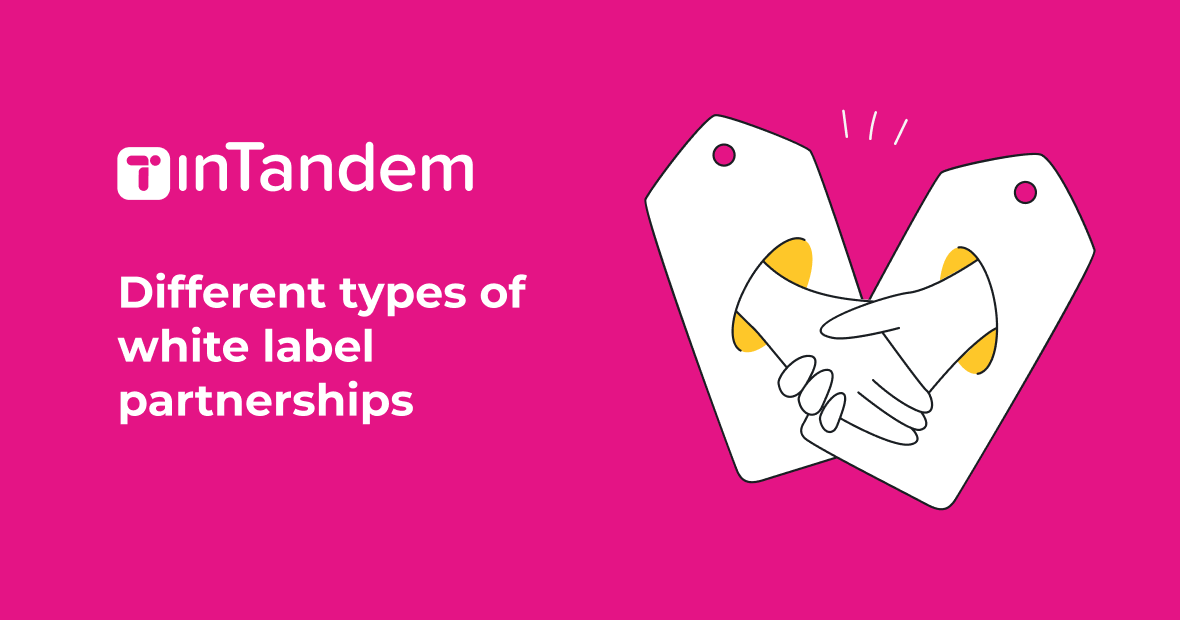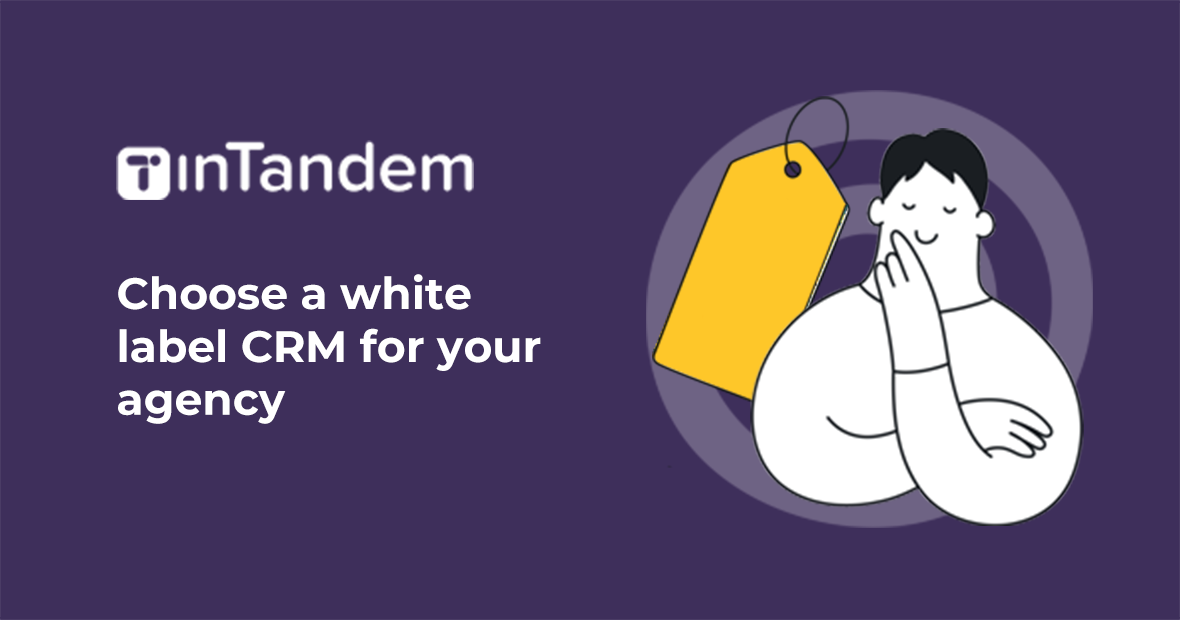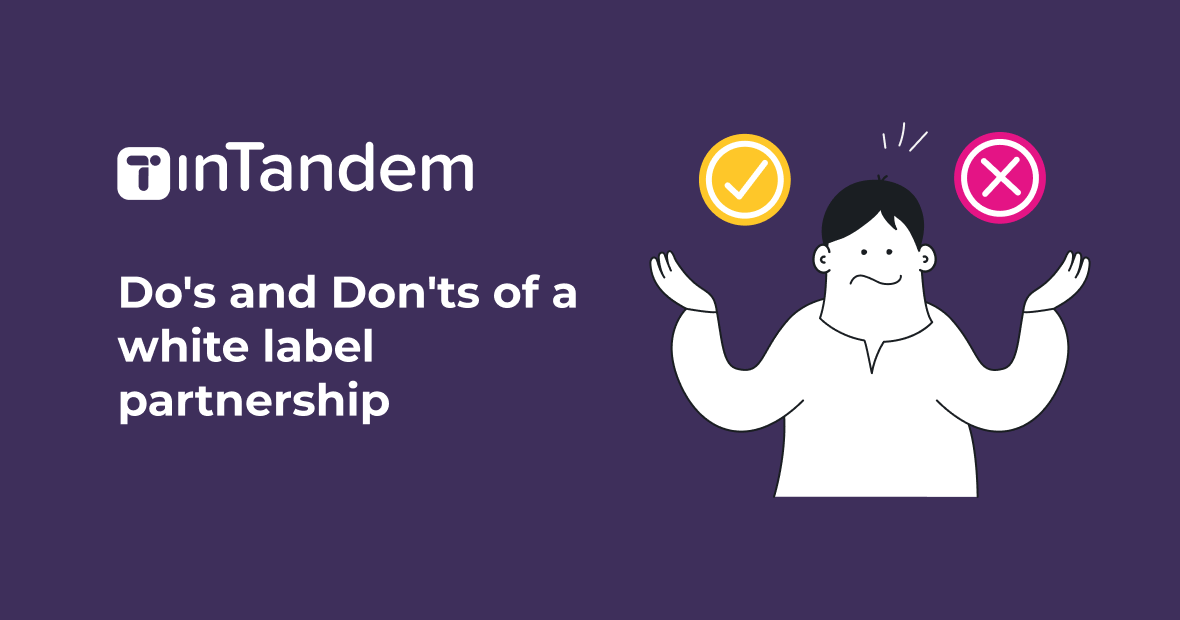Entering a white label partnership can be an exciting step that opens the door to many new opportunities. The prospect of expanding your offerings through white label agreements and business opportunities is undoubtedly enticing. However, before diving headfirst into the white label world, it’s crucial to have a solid understanding of the nuances involved.
Research is critical when it comes to white label partner programs, from assessing the risks and benefits to learning how to initiate and maintain a white label partnership, there’s a lot to know. Many businesses may not realize that there are different types of white label partnerships, each with unique characteristics and advantages.
In this blog post, we will delve into the details of white label partnerships, leaving you with invaluable insights about the possibilities that await and helping you navigate the intricacies of this lucrative landscape.
The white label reseller model
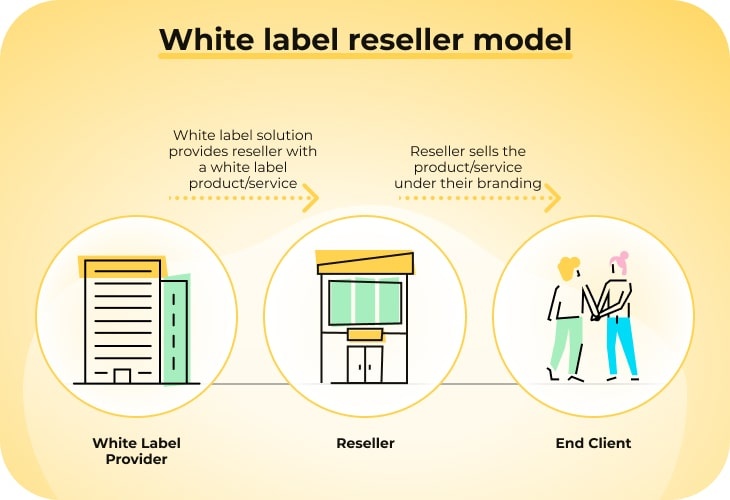
The white label reseller model is one of the more common types of white label partnerships. It’s where businesses can sell products or services created by another company under their own brand. It is ideal for businesses that want to expand their offerings without investing in product development or manufacturing.
The benefits of the white label reseller model include:
- Quick entry into new markets with pre-existing, market-proven products or services
- Increased revenue streams and customer loyalty by offering a broader range of solutions
- Ability to focus on marketing, sales, and customer relationships while leveraging the expertise of the white label provider
The white label referral model
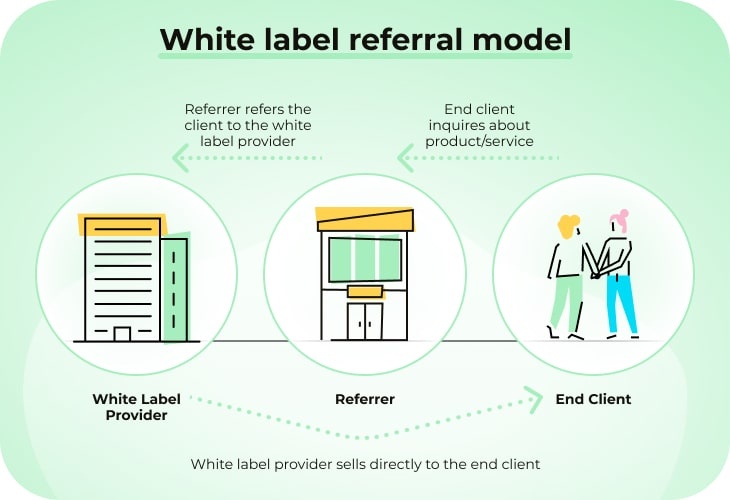
In this model, the white label provider has direct access to the end client, and the business that refers the client gets a referral fee from the white label agency. This model is suitable for businesses looking to extend their reach and acquire new customers through word-of-mouth marketing.
The benefits of the white label referral model include:
- Tap into an extended network of advocates who promote your brand and generate leads
- Cost-effective customer acquisition through referrals, reducing marketing expenses
- Foster strong customer relationships and trust through personal recommendations
The open white label partnership model
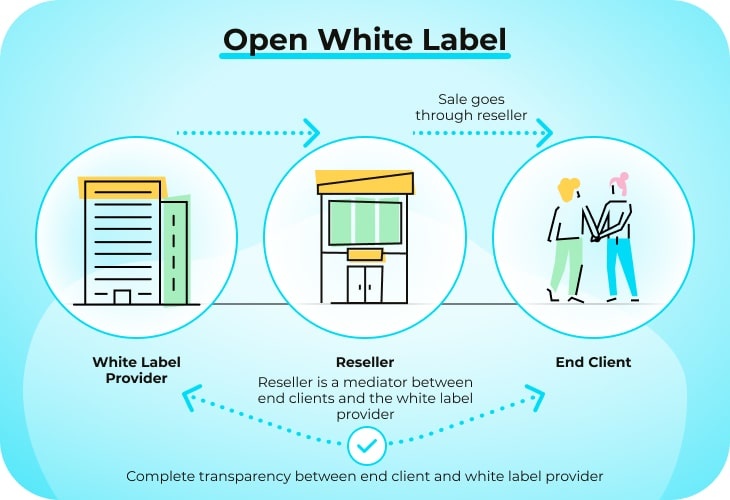
The open white label model revolutionizes traditional partnerships by promoting collaboration, transparency, and innovation. In this model, businesses openly collaborate, co-create, and co-innovate to deliver exceptional products or services under their own brands. The open white label model is ideal for businesses that value flexibility and thrive in dynamic ecosystems.
The benefits of the open white label model include:
- Access to a diverse network of partners, leveraging their expertise and resources
- Vibrant exchange of ideas, fostering creativity and innovation
- Unparalleled products or services that exceed customer expectations through collective strengths and contributions
The closed white label partnership model
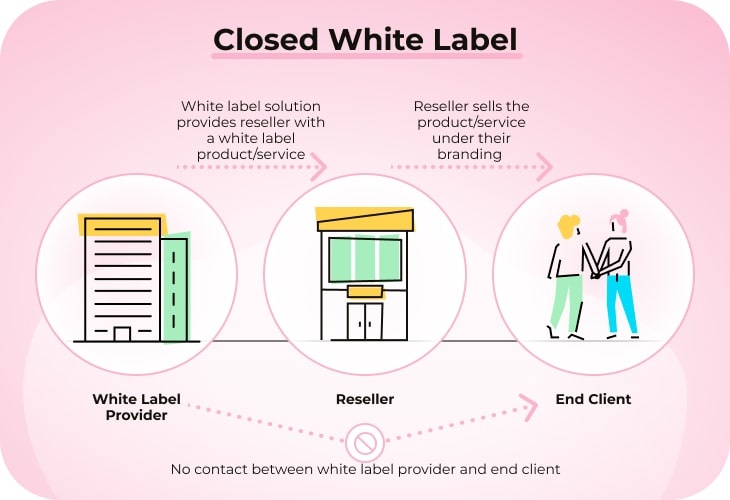
The closed white label model emphasizes exclusivity and tailored solutions, allowing businesses to offer unique, customized products or services under their own brand. In this model, businesses collaborate with select providers who specialize in delivering high-quality, specialized offerings. The closed white label model is ideal for businesses that prioritize brand control and differentiation.
The benefits of the closed white label model include:
- Creating distinct and differentiated solutions that align closely with the business’s vision and target market
- Maintaining tight control over the brand image and product customization
- Partnering with reputable providers that bring trust and credibility to the white label partnership
What to consider when choosing a white label partner: Key factors for success
When selecting a white label partner, several crucial factors must be considered to ensure a successful collaboration. Choosing the right partner can significantly impact the quality of your offerings, customer satisfaction, and the overall success of your white label venture. Here are key factors to consider when making this important decision:
Your goals
First and foremost, aligning your goals with those of your potential white label partner is essential. Ensure that their capabilities and expertise complement your objectives and that they can deliver the desired outcomes. Clear alignment in goals sets the foundation for a fruitful partnership.
Their experience
Take into account the experience and track record of potential partners. Evaluate their past projects, client success stories, and industry reputation. A partner with a proven track record in your target market or industry is more likely to deliver high-quality results.
The support offered
Consider the level of support the white label partner offers. Assess their responsiveness, communication channels, and willingness to collaborate closely with you. Adequate support ensures a smooth and efficient partnership throughout the entire process.
The opportunity
Evaluate the potential for growth and expansion that partnering with a specific white label provider presents. Consider their market reach, customer base, and the opportunities they can provide for your business. Assess whether the partnership can open doors to new markets or enhance your competitive advantage.
Does the final product answer your clients’ needs?
Carefully examine whether the white label partner’s product or service aligns with your clients’ needs and expectations. The ultimate goal is to offer solutions that address your clients’ pain points and deliver value to their businesses, this is how you create a sticky solution and reduce churn.
Work culture & values
Assess the compatibility of work culture and values between your organization and the potential partner. A harmonious partnership requires shared values, effective communication, and a positive working relationship that promotes collaboration and mutual understanding.
Pricing
Consider the pricing structure and terms offered by the white label partner. Ensure that the pricing aligns with your business model, profitability goals, and the perceived value of the final product. Striking a fair balance between quality and cost is essential for long-term success.
The key to successful white label partnerships: Choosing wisely for growth and success
White label partnerships offer businesses a world of opportunities to expand their offerings, reach new customers, and drive growth. Whether you choose to resell, refer, partner, or utilize white label software, the advantages are numerous: quick entry into new markets, increased revenue streams, access to expertise and resources, cost-effective customer acquisition, and the ability to tailor solutions to meet specific client needs.
A strong partnership with the right white label provider can deliver high-quality solutions that meet customer demands and drive growth. So, choose wisely, harness the power of collaboration, and unlock the full potential of your white label endeavors.
intandem partners with leading organizations that serve SMBs to propel forward a joint vision of empowering SMB digital transformation. To learn more, check out intandem.






















